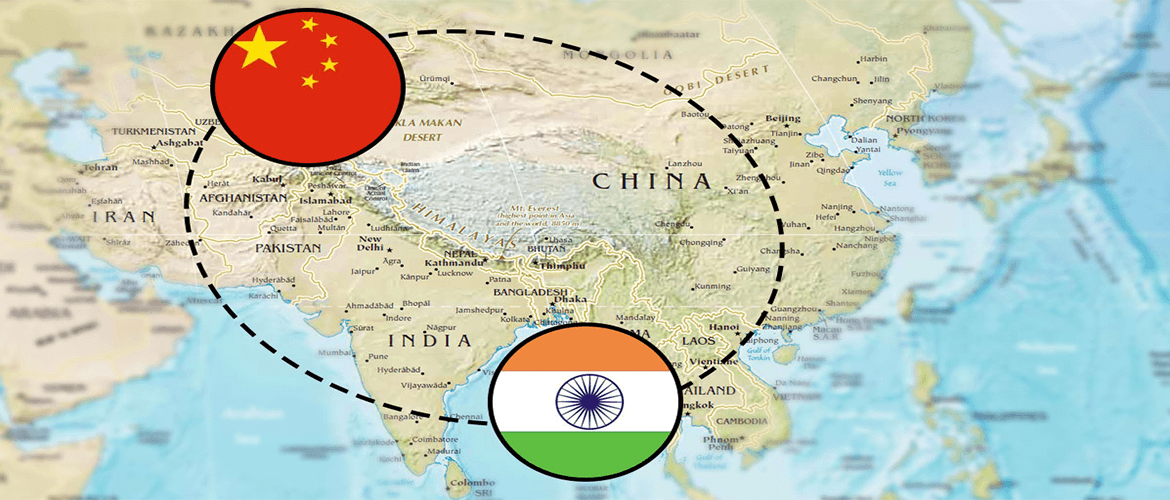Ripples in the South Asian neighbourhood
June 29, 2020 | Expert Insights
Arvind Gupta, Director, Vivekananda International Foundation, and Former Deputy, NSA, GOI was Director-General of the Institute for Defence Studies and Analyses (IDSA) from 2012 to 2014. He was a participant in a webinar conducted by the Synergia Foundation on 'Democracy under the shadow of a pandemic'.
Revisionism has several historical precedents. In the pre-modern period, countries had tried to challenge the status quo; and the hegemony of the British Empire was brought down by the United States. Now, with the relative decline of U.S. power, China is seeking to dominate geopolitical affairs.
Seeking to understand China's motives through the prism of historical precedents, Arvind Gupta said that China has now abandoned the foreign policy of former Chinese leader Deng Xiaoping which advocated ‘keeping one’s head down, hiding one’s strengths, and biding time’. After him, President Hu Jintao and his successor Xi Jinping have followed a far more aggressive foreign political strategy, which includes the mobilisation of nationalism, both among the public and the military. Recently, taking advantage of the many fault lines created by the pandemic, China made a series of incursions into the South and East China Seas, the Natuna Islands in Malaysia, and at the India-China border. This strategy has created major problems for the South Asian neighbourhood.
Dr. Gupta concurred that the scale of the problem that countries face to deter China is very large. With the outbreak of the pandemic and the resulting turbulence, China is taking advantage of this scenario to push forward its hegemonic policies.
BENDING TO MILITARISM
While the internal dynamics in the corridors of power in China cannot be understood fully, for an authoritarian, dictatorial party structure, both the party and the military are of prime importance. Xi has come under heavy criticism for China's role in the outbreak of the Covid-19 pandemic and his administration's containment measures, as well as the economic downturn and resulting public discontent. Thus, according to Dr. Gupta, China, under the sole leadership of Xi is currently seeking to keep full control over the military by allowing certain flexibility in military activities, in order to keep the cadres happy. This explains recent Chinese incursions, as well as policies like OBOR which seek to expand Chinese influence economically --- through loans and other funding --- even while not engaging in specific political or humanitarian efforts within said country. While the Chinese intent is obvious, it still remains unclear how best to respond to it.
A CONCERTED STRATEGY
Emphasising that a combination of Chinese revisionist tactics as well as internal policy were the prime motivators for recent Chinese aggression, Dr. Gupta suggested that any effort to combat China must include a strategy that will counter both these policies. Drawing from an opinion piece by Prime Minister of Singapore Lee Hsien Loong, he stressed that Asian countries could not be forced to take sides between China and the U.S., in their struggle for hegemony. While America provides some security incentives, countries in the Asian subcontinent are too closely interlinked and interdependent economically to be able to pose a sufficient challenge to China.
At an earlier webinar jointly organised by Law and Society Alliance and Defence Capital, Dr. Gupta had opined that India had accepted China’s ‘One China’ policy as reciprocity to the ‘One India’ policy. With China not respecting this understanding, it is time India revised its policy towards Tibet, Hong Kong, and Taiwan. China’s sensitivity to this issue can be judged from the strong reaction that this statement drew from the Chinese mouthpiece, Global Times.
ASSESSMENTS
If the recent aggressive Chinese moves are to be ascribed to keeping the military hawks happy, this is a dangerous and disturbing sign. The world, especially Asia, cannot allow a repeat of World War II when a rising Japan and its rampaging military, beyond civil control, was able to bring unimagined misery to Asia in its drive for a 'Greater East Asia Co-Prosperity Sphere'. The global community has to come together to avert any such repetition.
Chinese pain points are well known, and in deference to cultivating good relations with their giant neighbour, countries in its periphery have always kept a lid on these issues, trying to brush them under the carpet. It is time for China to be called out for its actions against its own people and the threat it poses to peace in the region through its uncalled for aggressive behaviour.



Comments